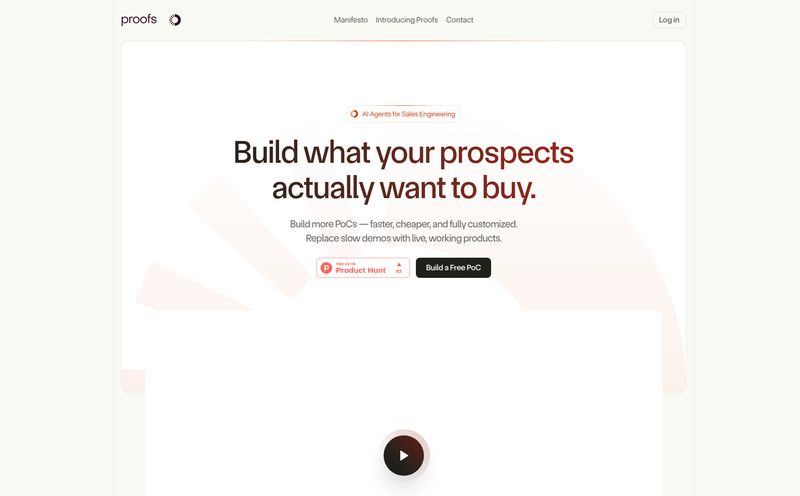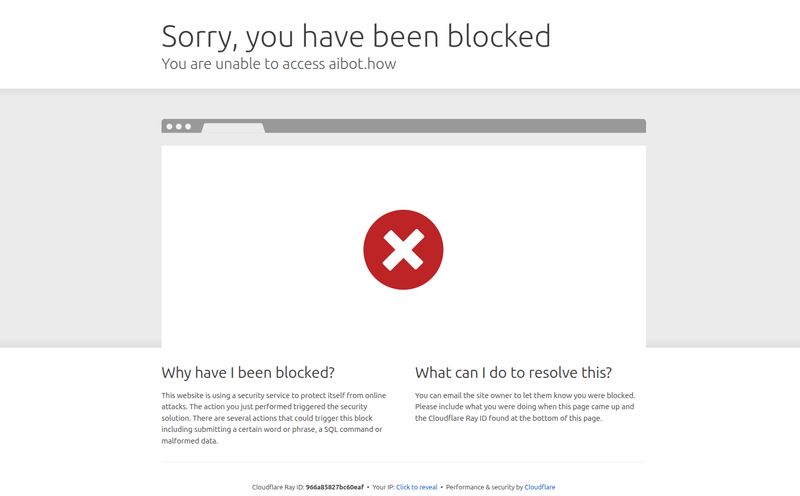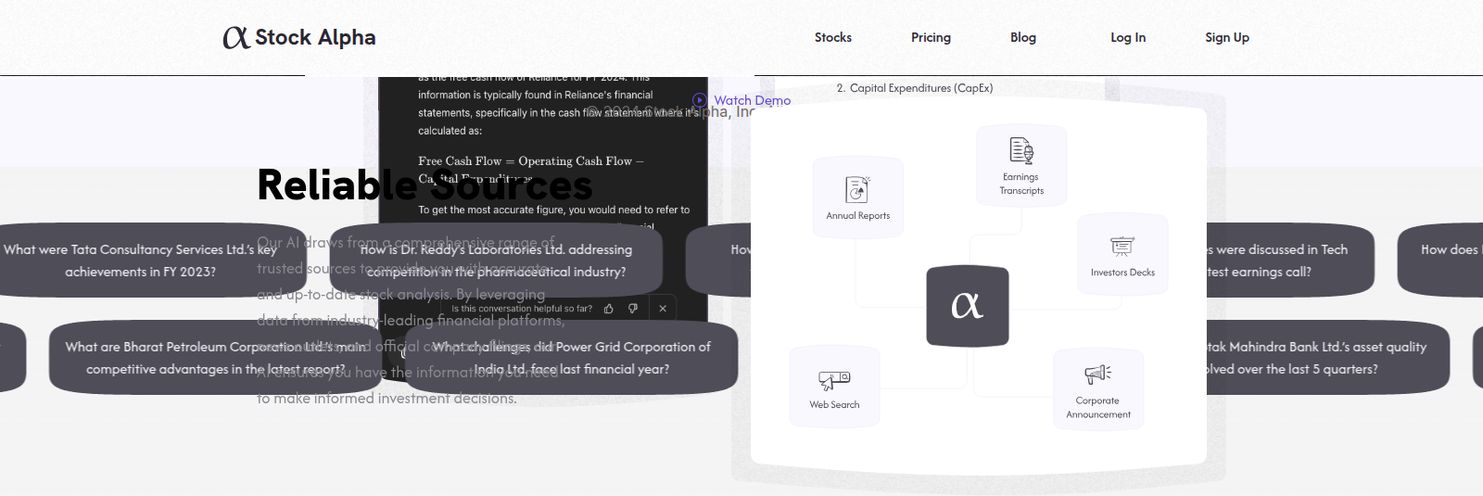If you’ve ever been near the project management side of architecture, engineering, or construction (AEC), you know the special kind of chaos it involves. It's a constant juggle of client emails, subcontractor queries, endless meetings that could have been an email, and bids that feel like you’re trying to solve a Rubik's Cube in the dark. For years, we’ve been promised that tech would save us. And some of it has helped! But a lot of it just feels like another login to remember.
So, when I first heard about Cogram, an AI platform built specifically for the AEC crowd, my curiosity was piqued. But so was my skepticism. Another platform promising to automate everything? I've seen that movie before. But I decided to take a closer look, and what I found was… interesting. More than interesting, actually. It feels like a step in a direction we’ve been needing for a while.
So, What on Earth is Cogram?
Think of Cogram less as a single tool and more as an AI co-pilot for your entire project lifecycle. It’s not trying to be a generic ChatGPT clone that you have to coax into understanding what a 'change order' is. It’s designed from the ground up with architects, builders, and engineers in mind. It speaks your language.
In essence, it’s a platform that automates the tedious, repetitive, but critically important tasks that eat up hundreds of hours. We’re talking about taking meeting minutes, managing that firehose of a project inbox, and even assisting with the bidding process. It’s meant to act as a digital foreman, overseeing the constant flow of information and flagging issues before they become four-alarm fires. The goal is simple: keep projects on track, on budget, and keep disputes to a minimum. A lofty goal, for sure.

Visit Cogram
A Look Under the Hood at Cogram's Features
Okay, let's get into the nuts and bolts. What does this thing actually do? Cogram isn't just one magic button; it's a suite of functionalities aimed at specific pain points in the AEC workflow.
Automatic Meeting Minutes That Actually Make Sense
I don't know anyone who enjoys being the designated note-taker in a two-hour coordination meeting. You're trying to listen, contribute, and somehow capture every action item and decision accurately. It’s a recipe for mistakes. Cogram hooks into the tools your team is already using – Microsoft Teams, Google Meet, Zoom, you know the drill. It transcribes the meeting and then, using its AI, generates a structured summary with key decisions and action items assigned to the right people. This isn’t just a raw transcript; it’s an intelligent summary. The amount of time and potential miscommunication this saves is, frankly, enormous.
Taking the Guesswork out of Project Bidding
The bidding process. It's a nightmare. A time-consuming, soul-crushing vortex of spreadsheets and last-minute changes that can make or break a project before a single shovel hits the dirt. Cogram’s AI-assisted bidding feature is probably one of its most compelling offerings. It can analyze project requirements and historical data to help you generate more accurate and competitive bids, faster. By automating the data-heavy lifting, it frees up your estimators and project managers to focus on strategy and spotting the details that a spreadsheet might miss. This moves the needle from pure drudgery to strategic work.
Finally, An AI That Can Tame Your Inbox
If your inbox looks anything like mine used to on a construction project, it’s a war zone. Cogram’s AI mail management is designed to bring order to that chaos. It can automatically sort, prioritize, and even draft responses to common queries. It learns from your company’s past projects and documents to understand the context, ensuring the information it pulls is relevant. Imagine an assistant that pre-digests your email, highlighting urgent requests and handling the routine stuff. Yes please.
From Site Reports to Proactive Risk Insights
This is where things get really forward-thinking. Beyond just documenting what’s happened, Cogram aims to help you see what’s coming. By analyzing daily logs, site reports, and other project communications, the platform can identify potential risks. Things like scheduling conflicts, potential budget overruns, or recurring quality control issues. This allows teams to be proactive instead of constantly reactive, which is the holy grail of project management. It helps answer the question, "What fire do I need to prevent today?" instead of just, "What fire do I need to put out?"
The Real Scoop: What I Like and What Gives Me Pause
No tool is perfect, and a healthy dose of skepticism is always warranted. After digging in, here’s my breakdown of the good and the… well, the things to think about.
The Bright Side: Where Cogram Shines
The biggest win here is the focus. This isn't a generic tool with an 'AEC template' slapped on. It was built for this industry, and it shows in the feature set. The integration with existing meeting platforms is smart; it reduces the friction of adoption. And I have to give them major props for their emphasis on enterprise-grade security. They talk about multi-factor authentication and state-of-the-art encryption, and explicitly state they don't store audio or video. In an industry where confidentiality is paramount, this is a massive green flag.
The potential for creating what they call 'repeatability and consistency' is huge. The quote on their site says it all: "Customers should expect the same quality whether the project is in North Carolina, California, or anywhere in between." That’s the dream, right? Standardizing excellence through smart systems.
The Not-So-Bright Side: A Few Caveats
First off, this is a sophisticated system. It's not a simple app you download and master in an afternoon. You'll need some initial setup and probably training to get it fully integrated and firing on all cylinders. That's an investment of time. Second, and this is true for any AI, it requires human oversight. The AI can draft a meeting summary or flag a risk, but it still needs an experienced human to give it the final sanity check. You can't just set it and forget it—at least not yet. It’s a powerful assistant, not a replacement for professional judgment.
The Big Question: How Much Does Cogram Cost?
And here we have it, the million-dollar question. Or maybe the hundred-thousand-dollar question? We don’t know. Cogram’s website doesn’t list pricing. Instead, you’ll find the familiar “Book a Demo” and “Contact Us for a Quote” buttons.
Honestly, this model always gives me a slight twitch. As a consumer, I want to see a price tag. But as someone who's been in this industry for a while, I get it. This isn't a one-size-fits-all product. The cost will likely depend on the size of your company, the number of users, the specific modules you need, and the level of integration required. This is an enterprise solution, and it’s priced like one. Don't expect a simple per-user, per-month fee you can slap on a credit card. You're going to be talking to a sales team to get a custom package built for you.
Is This Tool Right for Your Firm?
So, who should be booking that demo? If you’re a solo architect or a very small outfit, this might be overkill for you right now. The investment in time and money is probably better suited for another solution.
But if you are a medium-to-large architecture firm, engineering consultancy, or a general contractor struggling with project bloat, communication breakdowns, and risk management, then yes. You are exactly who Cogram is built for. The fact that they showcase clients like Corgan, Kirksey, and BAR Architects tells you they are playing in the big leagues. If you’re a firm of that caliber, the efficiency gains could offer a significant return on investment.
My Final Thoughts on Cogram
Cogram is an ambitious platform. It’s tackling some of the most persistent and costly problems in the AEC industry. It’s not just another piece of software; it’s a system designed to change how project information is managed. While the lack of transparent pricing and the need for human oversight are valid points of consideration, the potential upside is huge.
In a field that has sometimes been slow to adopt new technology, Cogram feels like a genuinely useful evolution. It’s a tool that understands the job to be done. If you’re tired of fighting the same battles with communication and repetitive tasks on every project, I’d say Cogram is, at the very least, worth a conversation.
Frequently Asked Questions About Cogram
- 1. What specific software does Cogram integrate with?
- Cogram integrates directly with the major video conferencing platforms where project meetings happen: Microsoft Teams, Google Meet, and Zoom. This allows it to automatically capture meeting data for its summaries and action items.
- 2. Is my project data secure with Cogram?
- Security seems to be a top priority for them. They promote having enterprise-grade security, including state-of-the-art encryption and multi-factor authentication. Importantly, they state they do not store any audio or video recordings, which is a critical privacy feature for sensitive project discussions.
- 3. Is Cogram difficult to set up and learn?
- It's not a plug-and-play mobile app. As with any powerful enterprise software, you should expect an initial setup and onboarding process to integrate it with your existing workflows and 'teach' it about your business knowledge. There will be a learning curve, but it’s designed to solve complex problems, so some initial investment of time is expected.
- 4. How is Cogram different from a general AI like ChatGPT?
- The key difference is specialization. A general AI is a blank slate; you have to provide all the context. Cogram is pre-trained on the language, processes, and challenges of the architecture, engineering, and construction industry. It understands terms like 'RFI', 'submittal', and 'punch list' out of the box, making its outputs far more relevant and accurate for its intended users.
- 5. Can Cogram replace a project manager?
- No, and it's not designed to. It's designed to make a project manager more effective and efficient. Think of it as an incredibly powerful assistant that handles the tedious data collection and documentation, freeing up the human project manager to focus on strategic decisions, client relationships, and complex problem-solving.
References and Sources
- Cogram Official Website
- Autodesk Redshift: "What Is AI in Construction and How Is It Driving the Future of the Industry?"



